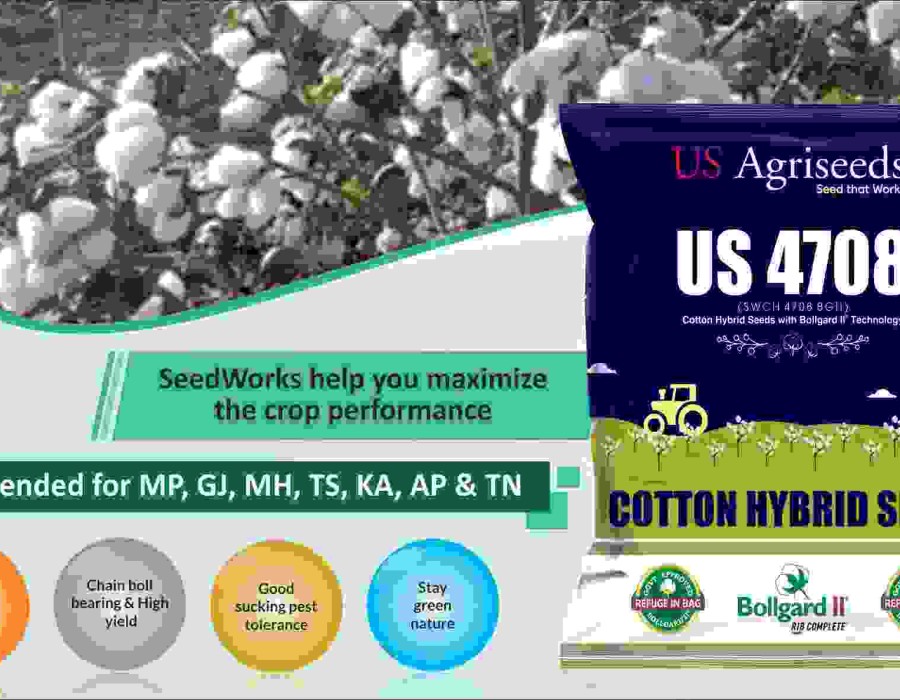The cotton industry in India has long been a cornerstone of the nation’s agricultural economy. As the largest producer of cotton globally, India plays a crucial role in the textile supply chain. With rising demand for higher yield and more resilient crops, Indian cotton seed companies have focused their efforts on developing hybrid seeds that promise greater productivity and disease resistance. However, meeting the high demand for these hybrid cotton seeds presents its own set of challenges. This article explores how cotton seed companies in India are addressing these challenges to ensure a steady supply to farmers across the country.
The Growing Need for Hybrid Cotton Seeds
Hybrid cotton seeds have become increasingly popular among Indian farmers due to their superior characteristics, such as higher yield potential, pest resistance, and improved quality of fiber. Traditional cotton varieties, while still in use, are no longer able to compete with the more advanced hybrid varieties that promise better returns for farmers. Hybrid seeds offer the potential to significantly boost productivity per acre, making them an essential tool for farmers looking to stay competitive in the ever-evolving agricultural landscape.
Challenges in Meeting the Demand for Hybrid Seeds
The demand for hybrid cotton seeds in India has surged over the past few decades. As farmers recognize the benefits of hybrid varieties, their desire for these seeds has increased exponentially. However, producing enough hybrid seeds to meet this demand is a complex process that requires careful planning, investment in research, and extensive infrastructure. Cotton seeds company in India face several challenges in ensuring that the supply meets the growing demand, including fluctuating weather patterns, changing pest and disease pressures, and the need for continuous innovation to meet evolving market needs.
Research and Development Efforts
To address the growing demand for high-quality hybrid cotton seeds, cotton seed companies in India are investing heavily in research and development (R&D). The development of hybrid seeds involves intricate genetic research to cross the best varieties of cotton, ensuring that the offspring have the desired traits such as high yield, resistance to pests, and tolerance to drought and heat. These research efforts are crucial for maintaining the competitiveness of Indian cotton on the global market. Companies are not only working on improving the performance of hybrid seeds but also ensuring that they are suited to the varied agro-climatic conditions across the country.
Ensuring Seed Quality and Purity
Maintaining the quality and purity of hybrid seeds is vital to ensure that farmers receive the promised benefits. Cotton seed companies in India employ stringent quality control measures to prevent contamination and ensure the genetic integrity of the seeds. This includes monitoring the entire seed production process, from the initial hybridization steps to the final packaging. The quality of seeds can directly impact the crop's performance, so ensuring consistency in seed quality is one of the key priorities for seed companies.
Strengthening Seed Distribution Networks
Efficient distribution is another critical factor in ensuring a steady supply of hybrid cotton seeds to farmers. Cotton seed companies in India are working to strengthen their distribution networks, ensuring that seeds reach even remote farming communities in a timely manner. This involves partnerships with local suppliers, retail outlets, and government agencies to enhance the availability of hybrid seeds across the country. In addition, companies are using digital platforms to educate farmers about the benefits of hybrid seeds and provide them with easy access to purchase options.
Addressing the Financial Constraints of Farmers
While hybrid cotton seeds offer significant benefits, their cost can be a barrier for many small and marginal farmers. To make these seeds more accessible, cotton seed companies in India are working with financial institutions, government programs, and other stakeholders to offer seed subsidies, low-interest loans, and other financial support to farmers. By making hybrid seeds more affordable, companies are enabling farmers to make the transition to higher-yielding crops without facing a financial burden. This support is crucial in helping farmers realize the full potential of hybrid cotton varieties.
Training and Support for Farmers
Along with providing access to high-quality hybrid seeds, it is equally important to offer training and technical support to farmers. Cotton seed companies in India are increasingly focusing on educating farmers about best practices for cultivating hybrid cotton. This includes providing guidance on planting techniques, pest management, irrigation practices, and crop rotation strategies. By empowering farmers with the knowledge and skills to manage their crops effectively, companies can help ensure that the potential of hybrid cotton seeds is fully realized.
Government Policies and Support
The Indian government has played a significant role in supporting the cotton seed industry. Several initiatives, including the National Mission on Cotton and the introduction of Minimum Support Prices (MSP) for cotton, have helped stabilize the industry and ensure farmers receive a fair price for their produce. Additionally, government-backed seed certification programs help ensure that farmers receive quality seeds, which is crucial for the success of hybrid cotton cultivation. The ongoing collaboration between cotton seed companies and government agencies is essential for the continued growth of the cotton sector in India.
Sustainability in Seed Production
As the demand for hybrid cotton seeds increases, there is growing emphasis on the sustainability of seed production practices. Cotton seed companies in India are focusing on developing seeds that not only increase yield but are also environmentally sustainable. This includes the development of cotton varieties that require fewer inputs such as water, fertilizers, and pesticides. By adopting sustainable farming practices and promoting eco-friendly seed production methods, these companies are contributing to the long-term viability of cotton farming in India.
The Future of Hybrid Cotton Seeds in India
Looking ahead, the future of hybrid cotton seeds in India appears promising. With ongoing advancements in biotechnology, seed companies are likely to develop even more resilient and high-yielding cotton varieties. The increasing adoption of precision agriculture technologies and data-driven farming techniques will also contribute to more efficient use of resources, helping farmers optimize the benefits of hybrid seeds. As the demand for cotton continues to grow, the role of hybrid cotton seeds in ensuring food security and economic stability for farmers will remain crucial.
Conclusion
Indian cotton seed companies play an essential role in meeting the rising demand for hybrid seeds by investing in research and development, ensuring quality control, expanding distribution networks, and offering financial and technical support to farmers. By addressing the challenges posed by fluctuating demand, environmental factors, and financial constraints, these companies help empower farmers to improve their productivity and income. With continued collaboration between seed companies, government agencies, and farmers, the future of India’s cotton industry looks bright, with hybrid cotton seeds at the heart of its continued success.






Comments